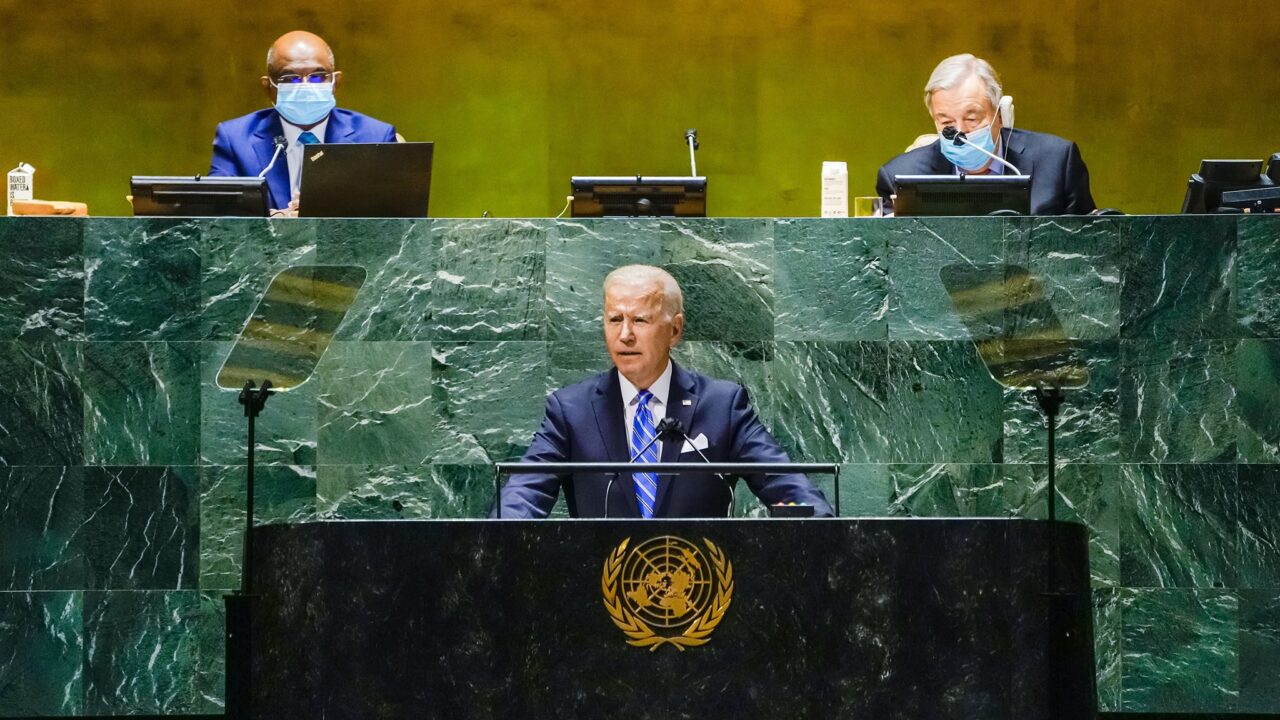How G7 leaders can bring the pandemic to an end
Rich countries are hoarding vaccines at the expense of poorer ones – but also to their own detriment. Without extending help to all countries, the whole world will continue to suffer
The UN General Assembly currently taking place is an opportunity to finally agree a plan to end the covid-19 pandemic everywhere.
The threat we face is real and present. In the last week, over 60,000 people have died from covid-19, equivalent to the entire capacity of London’s Emirates stadium, home of the Arsenal football team.
The aftershocks of the pandemic are now being felt. In January 2021, the International Chamber of Commerce predicted that vaccine inequities could cost the global economy $9.2 trillion, in large part because of supply chain disruptions. Today, such disruptions are impacting on everything from running shoes to Christmas decorations. The cost of shipping a container from Asia to north America increased fivefold in the last 12 months, while food prices are at their highest level since the 1970s, up 33 per cent from this time last year, risking social unrest in many countries.
In July, I made the case for why multilateralism’s failure to tackle grotesque vaccine inequities would compound the cost and complexity of – and have knock-on effects on – our ability to tackle climate change. Three months later, the situation has barely altered. Just 3.8 per cent of the population in Africa have been fully vaccinated, compared to 45 per cent in north America and 50 per cent in Europe.
New evidence from South Africa presents yet another reason for action. Populations who are immuno-compromised, because of their limited resistance to the virus, stay infected for longer, increasing the likelihood of variants developing. Africa’s combination of low vaccination rates and high prevalence of HIV/AIDS presents a particular risk.
Today, taking the opportunity of the UN General Assembly meeting, Joe Biden will hold a summit with three goals: to vaccinate the world, save lives now (with a focus on testing, PPE, therapeutics, and oxygen supplies), and to build back better (with a focus on pandemic preparedness). Biden will ask leaders to endorse a new goal to ensure at least 70 per cent of the population are fully vaccinated in all country income categories by the time the next UN General Assembly meets in 2022.
The language is slightly clunky, but it ensures that equity is baked in from the start; it cannot be achieved without low- and middle-income countries hitting the target. But reaching it will mean a radical shift in how G7 countries in particular have managed the pandemic to date.
New research released today by my organisation, the ONE Campaign, shows that 107 countries will fail to reach the target without urgent action, leaving 1.2 billion people without full vaccination. On the current trajectory of vaccination rates, 97 per cent of those in low-income countries will not be fully vaccinated by September 2022. Meanwhile, G7 countries could share an additional 600 million doses this year without impacting on their domestic vaccination campaigns – enough to provide every adult in sub-Saharan Africa with one shot.
G7 countries could share an additional 600 million doses this year without impacting on their domestic vaccination campaigns – enough to provide every adult in sub-Saharan Africa with one shot.
While rich countries are on track to reach the target, they are grappling with vaccine hesitancy and continue to have more vaccines than they can effectively administer. In low- and middle-income countries, the problem is overwhelmingly one of supply.
This will require a deliberate and strategic shift away from hoarding doses in rich countries towards targeting vaccination scale-up in countries and regions with low coverage.
G7 countries should take the following steps to help put the global response on track for success.
- Share doses faster: ONE estimates that G7 countries will have accumulated nearly 600 million unused doses by the end of 2021. That is enough to fully vaccinate 50 per cent of the population in low-income countries. G7 states should immediately share doses to get ahead of this surplus and more quickly enable low-income countries to protect healthcare workers and the most vulnerable in their societies.
- Stop monopolising supply: Wealthy countries and major pharmaceutical companies must stop actively restricting access to the vaccine market. This will enable countries and international bodies such as the African Union to buy their own vaccines fairly. G7 countries should allow vaccine manufacturers to immediately prioritise and fulfil their contracts to COVAX and to provide regular and clear supply forecasts so all states can better plan their response. This will require G7 countries that have contracted high volumes of vaccines to trade their near-term vaccine delivery schedules with COVAX so it can save more lives, more quickly.
- Increase transparency: G7 countries should release the confidentiality clauses in their contracts to increase visibility into what is being supplied. Pharmaceutical companies should then provide real-time data on the volume of vaccines they will produce, where the vaccines are going, their manufacturing capacities, and the potential cold chain requirements. This will help countries put in place logistics to get doses into arms.
- Fully finance global access to vaccines, tools, and treatments: The Access to Covid-19 Tools Accelerator (ACT-A) has a $16.6 billion funding gap for 2021. G7 countries should fill this funding gap in 2021 to enable all countries to strengthen their covid-19 response and pledge to do their fair share of funding for 2022 for scaled-up vaccine roll-out.
We have the technology and resources to end the pandemic. We now have a political process to do so in the form of today’s high-level summit. The economic, humanitarian, and social costs of failing to take action are clear. And we look forward to leaders doing what they were elected to do: lead.
The European Council on Foreign Relations does not take collective positions. ECFR publications only represent the views of their individual authors.



